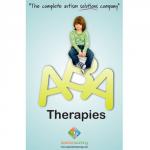Blog Categories
- ADHD
- Applied Behavior Analysis
- Autism Awareness
- Autism Service Providers
- Case Studies
- Dignosis
- Classroom Management
- Credentials
- Ethics
- Family Matters
- FAQs About LIVE Events
- Financial Planning
- Holiday Planning
- IEP's
- Panelists
- Private Equity in Autism & ABA Industry
- Psychopharmacology
- Sensory Processing Disorder
- Speech and Communication
- Subject Matter Experts
- Summer Planning
- Transition Planning
What is facilitated communication and why you should stay clear
She is a speech-language pathologist who has specialized in the treatment of autism spectrum disorder for close to 20 years. Lynn has presented at the local, state, and national level on topics regarding autism, communication and assessment. Her passion for advocacy, education, and effective treatment directs her professional and personal activities. Lynn recently completed coursework for completion of her BCBA. She currently serves on the Ohio Autism Coalition, the Autism Alliance and Advisory Board for speechpathology.com, and the National Autism Spokesperson Network.
What is facilitated communication and why you should stay clear
Facilitated communication, or FC, is a technique developed to help individuals, who have autism or other developmental disabilities, and are non-verbal, communicate their wants and needs. In FC, the communication facilitator stands or sits behind or beside the individual and supports their arm while they use a keyboard to communicate. The basic premise of FC is that the person who is unable to use verbal speech has “undisclosed literacy” and “normal intellectual functioning” and needs to have help through the use of a facilitator and a keyboard.
Unfortunately, studies that have been completed to measure the effectiveness of FC have shown that the typed messages were actually created by the facilitator (whether knowingly or unknowingly). FC has been used in the completion of school work, communications with therapists and counselors and in the worst case scenarios – to describe instances of abuse and neglect. Again, in each instance it was shown that the facilitator is creating the messages and not the individual with the disability.
Two well-known and respected professional organizations, ASHA (The American-Speech- Language-Hearing Association) and the APA (The American Psychological Association) have both created statements guiding professionals on the use of FC. In both instances professionals and consumers are warned against the use of FC because of the lack of scientific evidence and potential harm that its use may cause.
AHSA states, “It is the position of the American Speech-Language-Hearing Association (ASHA) that the scientific validity and reliability of facilitated communication have not been demonstrated to date. Information obtained through or based on facilitated communication should not form the sole basis for making any diagnostic or treatment decisions.”(ASHA, 1195) while the APA says, “BE IT RESOLVED that APA adopts the position that facilitated communication is a controversial and unproved communicative procedure with no scientifically demonstrated support for its efficacy.” (APA, 1994).
Not only is FC unproven and could cause significant harm, but due to the non-scientific nature of the technique, insurance companies may not pay for treatments that include FC. Clinics that have utilized FC may charge exorbitant fees for this therapy.
Parents, caregivers, and any individual seeking communication treatment must consider all factors when deciding on a plan of action. Important questions to ask include:
1. Does this method have science to back it up?
2. Is my loved-one protected from physical or psychological harm if they use this technique?
3. Will my insurance (or other funding source) pay for the treatment?
4. Does the treatment have the support of national professional organizations?
If the answer to each question is not “YES” then further exploration is needed as to whether this method is the best for your loved one. Ask questions, do your homework, and investigate. Then when you do make a treatment decision you know you made it with the best information at the time!!
RECOMMENDED PRODUCTS
Curso ABA en Línea Con Subtitulos en Español (Level 1 ABA Online Training Course – Spanish)



